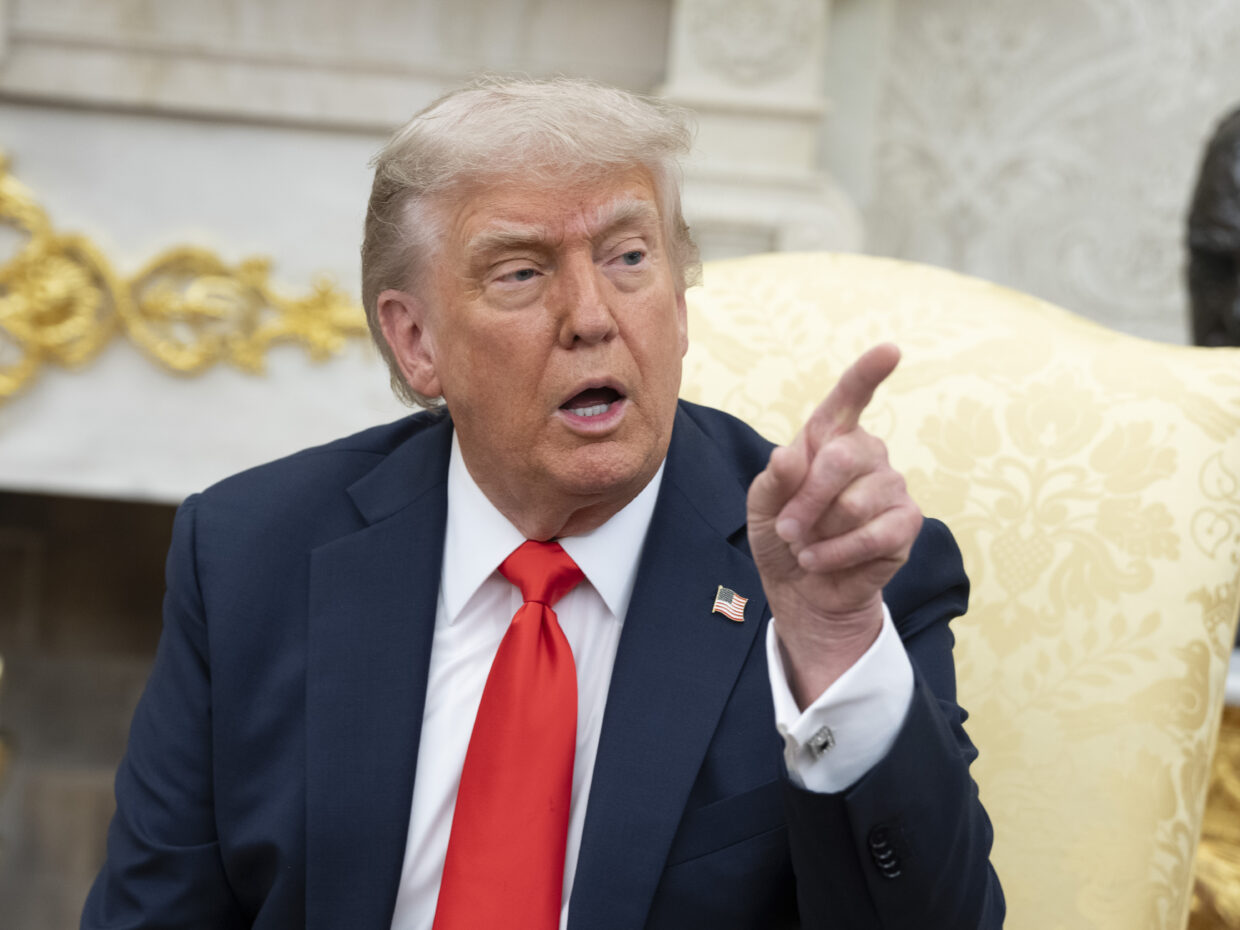Donald Trump launched a $10 billion defamation lawsuit against The Wall Street Journal and its parent companies in Miami federal court, accusing the publication of falsely linking him to a risqué birthday letter allegedly sent to Jeffrey Epstein.
The complaint, filed Tuesday (July 18), names The Wall Street Journal, Dow Jones, News Corp, owner Rupert Murdoch and two of the paper’s reporters, claiming they published a “false, defamatory, unsubstantiated, and disparaging” story that Trump says never should have seen the light of day.
At the center of the suit is a 2003 letter WSJ reported was written by Trump to Epstein for his 50th birthday.
The article claimed the note was part of a leather-bound album curated by Ghislaine Maxwell, which allegedly included a nude sketch and suggestive remarks.
Trump flat-out denied ever writing such a letter, calling it “FAKE.”
He also took a direct shot at Murdoch, saying he looked forward to seeing him on the witness stand.
“We have just filed a POWERHOUSE Lawsuit,” Trump declared, before pivoting into a broader attack on the media. “This lawsuit is filed not only on behalf of your favorite President, ME, but also in order to continue standing up for ALL Americans who will no longer tolerate the abusive wrongdoings of the Fake News Media.”
The lawsuit accuses the Journal of “clear journalistic failures” and claims the story caused Trump significant financial and reputational damage.
Meanwhile, Trump is also calling for the release of sealed grand jury records tied to the investigation into Jeffrey Epstein.
Donald Trump’s War On The Media
This legal battle is the latest in a string of controversial lawsuits Trump has filed against major media outlets. He previously sued CBS News and ABC News, including a $20 billion claim against CBS over an edited 60 Minutes interview. He’s also reached settlements with Paramount and Disney, each reportedly paying him $16 million.
Critics argue Trump’s legal blitz is part of a broader campaign to intimidate the press. Advocacy groups warn that his tactics, combined with media companies’ willingness to settle, could chill reporting and erode First Amendment protections.
Trump has also targeted outlets like PBS and NPR, taking steps to cut federal funding, over coverage that didn’t align with his narrative. He continues to label journalists who challenge him as “enemies of the people” and threatens lawsuits or regulatory action in response to stories he dislikes.
